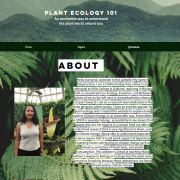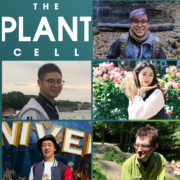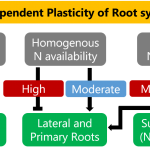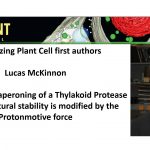Informational Interview with Sheng-Chieh Wu: A Journey of a Teaching Assistant
Informational Interview by You-Wun Huang, ASPB Conviron Scholar
Sheng-Chieh Wu is a Teaching Assistant of the Department of Life Science, National Taiwan University (NTU), who is always passionate during his teaching. He earned his M.S. degree in NTU but struggled during his Ph.D., eventually chosen an alternative path for his career.
I believe his story is interesting and worth sharing since many Ph.D. or post-docs might not earn their ideal positions. If I successfully become a Professor, my students might face the same reality.
We didn’t chat in English, so I didn’t upload my recordings. This is a translated and rearranged version.
How is a Teaching Assistant differing from a Professor?
This is a position parallel to Professor’s (from the same quota) while requiring only an M.S degree but 100% teaching. A Teaching Assistant is designed for providing high-quality lab courses to students. Even though I don’t hold my laboratory and advise graduate students directly. I can still do research on my will, like collaborating with other Professors and students. Many Ph.D. and professors still came to me to consulted plant taxonomic questions.
Note: Just after our conversation, a Ph.D. student came to him with bags of branches, searching for answers.
What happened in your journey?
First, I studied plant taxonomy, especially Poaceae, for my graduates. However, there are some difficulties that I failed to overcome during my Ph.D.……. After dropping out, I worked in an IT company as an engineer, writing and checking code for DATA bases. The working environment was different, but the main reason for me to quit is that I couldn’t bear the smoking habits of other co-workers. After then, I work in an ecological consultant company, using my specialties in plant taxonomy to investigate plantations. Later, I heard that the NTU had a vacant post, so I came back to the NTU ten years ago.
Note: Besides lab courses, he teaches outside the NTU and writes books to popularize popular science. He said many scientific facts are essential but too far to the public.
Is there any regret?
Of course, unable to accomplish the Ph.D. degree that I had struggled for nine years is a pity. However, I’m satisfied with my current circumstances. Even without that degree, I can still teach students in a college. Compare to the pressure a professor’s shoulders, I can put more effort into teaching, a job that pleasures me the most. Sharing time with students is fun!
Note: He mentioned he too old (around 50) for pursuing a Ph.D. now. Even if he earns one now, it is only a redundant trophy to him. He also said that when his acknowledges reached a standard, whether holding a Ph.D. or not seems no much difference. There is no need to fix our perspective that Ph.D. is that essential. Finding what suit us well is more important.
Any challenge in your work?
No big ones now, but of course, during my transition period, updating my knowledge took some effort. Nowadays, purely plant identification is not enough in plant taxonomy. Giving plants evolutional, morphological or functional explanations is essential. Otherwise, we will be substituted by AI soon. I also had to develop my teaching style and skills such as producing good slides. I learned a lot from other teachers, blogs, and online videos. Learning from teaching is the key to find the best style for one’s teaching.






